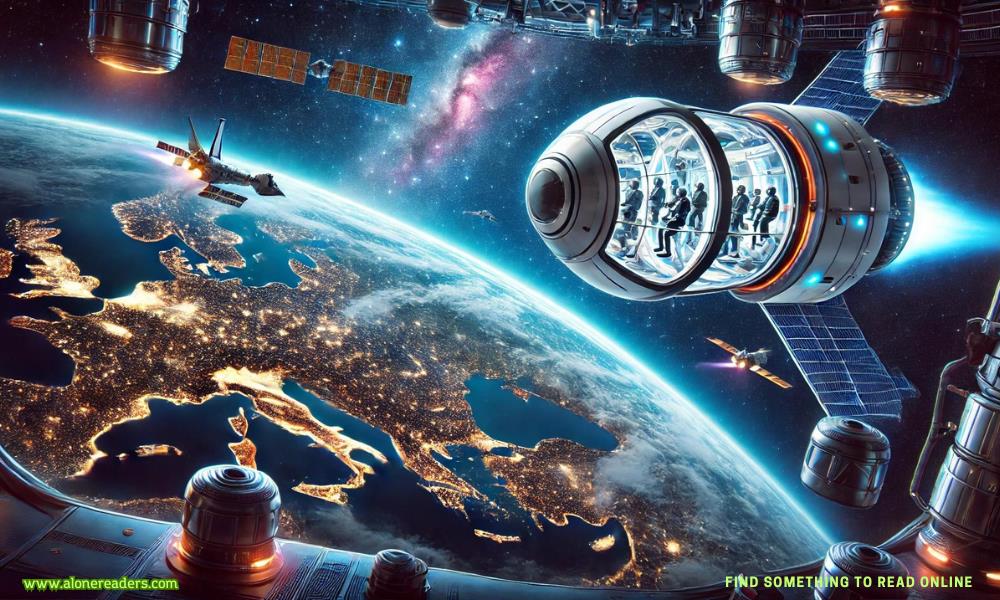
Space tourism, once a concept confined to the realm of science fiction, is rapidly becoming a reality. With companies like SpaceX, Blue Origin, and Virgin Galactic at the forefront, the dream of venturing beyond Earth's atmosphere is closer than ever. This burgeoning industry is poised to revolutionize not only how we travel but also our understanding of space and our place in the universe.
The commercial space travel industry has made significant strides in recent years. In 2021, Blue Origin's New Shepard rocket successfully launched the first crewed mission, with Jeff Bezos, the company's founder, among the passengers. This historic flight marked a milestone in space tourism, demonstrating that private citizens could safely journey to space. Following this, Virgin Galactic's VSS Unity spacecraft carried its founder, Richard Branson, and several other passengers to the edge of space, further proving the feasibility of commercial space flights.
SpaceX, led by Elon Musk, has also made substantial progress with its Crew Dragon spacecraft. Initially designed for NASA missions, Crew Dragon has the potential to transport private passengers to the International Space Station (ISS) and beyond. The company aims to offer orbital trips around the Earth and even lunar missions, significantly expanding the scope of space tourism.
The implications of space tourism are profound and multifaceted. Economically, the industry promises to generate substantial revenue and create numerous jobs. According to a report by Bank of America Merrill Lynch, the space industry could be worth $3 trillion in the next three decades, with space tourism playing a crucial role. This economic boost could spur advancements in related fields, such as aerospace engineering, telecommunications, and materials science, fostering innovation and growth.
Socially, space tourism has the potential to inspire a new generation of explorers and scientists. The excitement and curiosity generated by these missions can reignite interest in STEM (Science, Technology, Engineering, and Mathematics) education, encouraging more young people to pursue careers in these critical areas. Additionally, the ability to view Earth from space can foster a greater appreciation for our planet's fragility and the need for environmental stewardship. Astronauts often describe the "Overview Effect," a cognitive shift in awareness experienced during spaceflight, leading to a deeper connection with Earth and a sense of responsibility to protect it. Space tourism could bring this transformative experience to a broader audience, potentially influencing global perspectives on environmental conservation.
Moreover, space tourism could serve as a catalyst for international collaboration. As more countries and companies invest in space travel, the potential for cooperative ventures increases. This collaborative spirit can extend beyond economic interests to include scientific research, disaster response, and global problem-solving efforts. By working together in space, humanity can develop a greater sense of unity and shared purpose, transcending geopolitical boundaries.
However, the advent of space tourism also raises several ethical and practical concerns. One major issue is the environmental impact of frequent rocket launches. Despite advances in technology, rocket launches still produce significant carbon emissions and other pollutants. As the industry grows, it will be crucial to develop more sustainable practices and technologies to mitigate these effects. The potential for space debris is another concern. The increasing number of satellites and space missions raises the risk of collisions and the creation of space junk, which can pose a threat to both crewed and uncrewed missions. Effective management and regulation of space traffic will be essential to ensure the long-term sustainability of space activities.
Safety is another critical consideration. While recent missions have demonstrated the feasibility of commercial space travel, the risks involved remain significant. Ensuring the safety of passengers will require rigorous testing, strict regulatory oversight, and continuous improvements in technology and procedures. Companies will need to maintain transparency and accountability to build public trust and confidence in space tourism.
Accessibility is also a key issue. Currently, the high cost of space travel restricts it to a wealthy few. To truly democratize space tourism, efforts must be made to reduce costs and make space travel more affordable. This will likely involve technological advancements, economies of scale, and potentially public-private partnerships to subsidize costs. Expanding access to space can democratize the experience and ensure that its benefits are widely shared.
In conclusion, space tourism represents an exciting and transformative frontier. As commercial space travel becomes more accessible, it has the potential to significantly impact our economy, society, and global perspective. By inspiring innovation, fostering international collaboration, and encouraging environmental stewardship, space tourism can play a vital role in shaping our future. However, addressing the ethical, environmental, and safety challenges will be crucial to realizing its full potential. As we stand on the brink of this new era, the journey into space promises to be one of humanity's most profound and inspiring adventures.